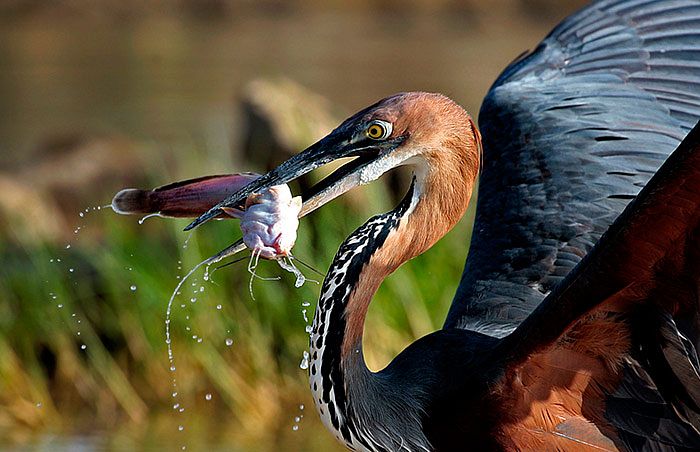As many Pacific Rim countries gear up for the Trans-Pacific Partnership trade agreement (TPP), an unlikely conflict is growing between Vietnam and the US. Surprisingly, it’s neither centered on human rights nor environmental issues, but rather catfish.
In a recent report, our beloved NPR dove into the dispute and found that policies effecting catfish farming are very local and very personal issues in both countries; so much so that this seemingly small dispute could hinder the implementation of the TPP.
When catfish became popular across America in the 1980s, domestic fish farmers could hardly keep up with demand. But over the past decade, cheaper, Vietnamese catfish have flooded the market and undercut local producers such as Mississippi resident, Bill Battle, "At one time, I was 3,000 acres. Now I'm basically about 1,200 acres of water," he told NPR.
Many fear that Vietnamese catfish, which now make up 60% of the American market, also carry serious health risks as local food safety regulations are much looser than those applied to their US counterparts. Echoing this concern was Ben Pentecost, president of Catfish Farmers of America who said, “U.S. catfish farmers have serious food safety concerns about the Vietnamese fish, which they say are raised with antibiotics in polluted water,” a claim disputed by Vietnamese embassy official, Le Chi Dzung:
"We understand that the American consumers have very high standards, and our ... farmers understand that," he said. "And we have been working with them to make sure that the regulations are met, the issues are addressed."

A sign in Mississippi, USA showing the strong local connection to catfish.
Even if these health issues are addressed, this isn’t simply a dispute between trade partners. It’s representative of many of the smaller issues that need to be ironed out before the TPP can be implemented:
“Ernie Bower, an Asia specialist with the Center for Strategic and International Studies, says the catfish issue is "emblematic of the fact that trade issues get very local, very quickly."
Bower says the catfish dispute puts the Obama administration in a difficult position. According to private documents on WikiLeaks, U.S. negotiators working on the TPP are already finding it hard to make their case on issues such as intellectual property rights, environment and labor. Bower says the administration may want to protect the American catfish farmer, but sees a TPP agreement as absolutely vital to American competitiveness.”
Conversely, Dzung illustrated the challenge of explaining to Vietnamese catfish farmers why they must give up their livelihoods:
"We cannot go back to them and say, well, we should open our market to American products, [if] at the same time we are seeing the possibility of our catfish export to the U.S. stop, just like that ... and thousands of jobs ... will be gone," he said.
If this sounds personal, that’s because it is. A strong parallel are the marginalized, indigenous corn farmers of Southern Mexico who had been growing their staple crop (which also had significant cultural and religious importance) for thousands of years. When the North American Free Trade Agreement (NAFTA) went into effect in 1994, these farmers were told to stop growing the crop to avoid undercutting US farmers. The local reaction to these terms would eventually lead to armed revolution in the form of the Zapatistas.
Would the same happen in Vietnam? Given the lack of indigenous activism (or activism of any kind for that matter) and strong central government, it’s extremely unlikely.
But who would have thought that catfish would become one of the major barriers to the implementation of arguably the century’s biggest free trade deal?
[NPR // Photos via Aftab Uzzaman and tinkerbrad]














